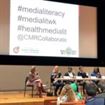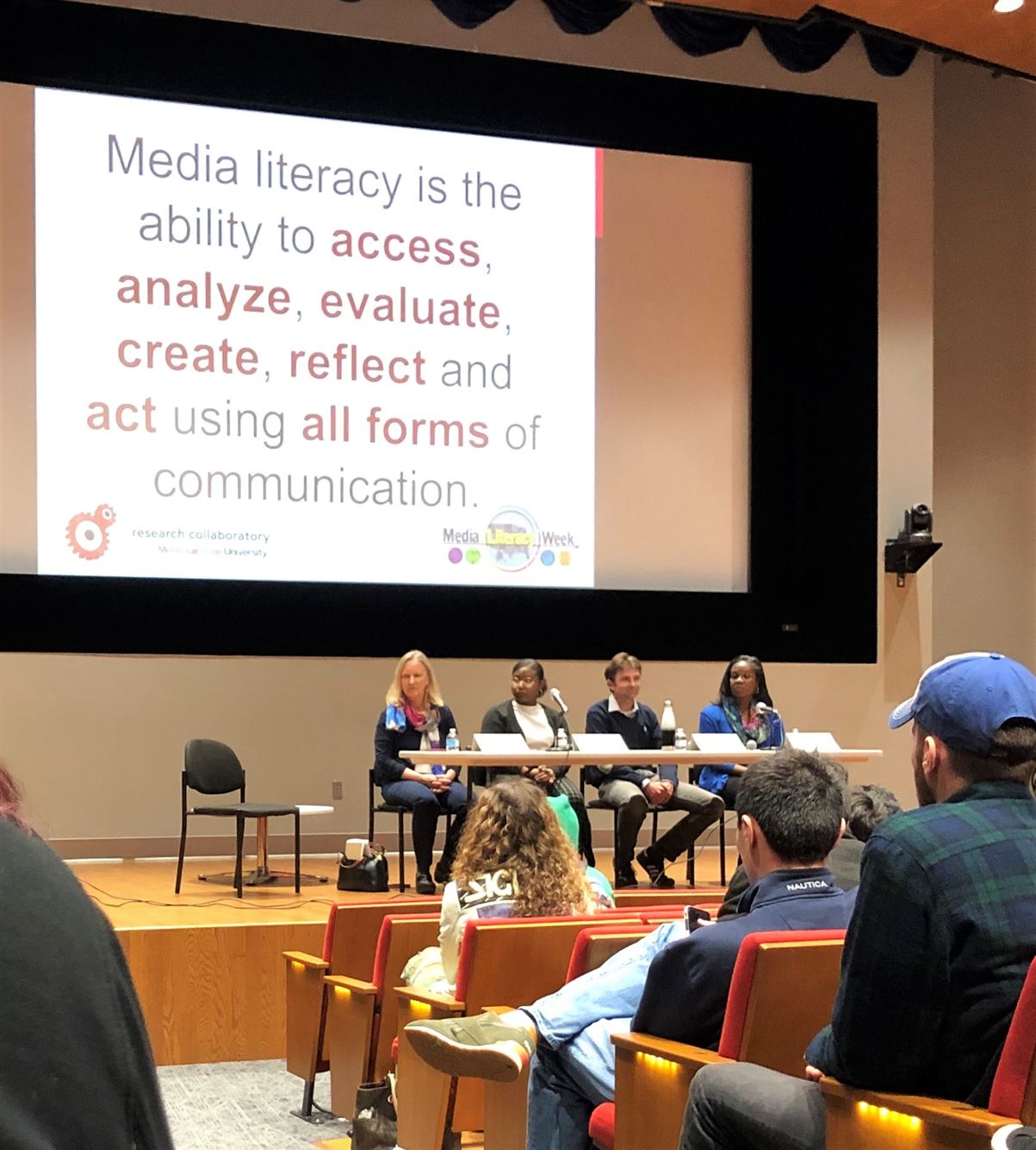On Oct. 21, the School of Communication and Media (SCM) held a lecture style panel of professors and students who discussed the various ways media has affected food deserts across America. The presentation opened with a humorous element, as moderator Dr. Vanessa Greenwood apologized to those students who attended thinking that desserts were the topics of discussion.
Unfortunately, there were no desserts provided, but the information discussed was more fulfilling than chocolate chip cookies.
Greenwood is a professor and the director of communication and media research at Montclair State University. Her presentation began with a few definitions to help the audience understand the topics. She defined media literacy as “the ability to access, evaluate, create, reflect and act using all forms of communication.” This was an important concept throughout the discussion, as Montclair State is celebrating Media Literacy Week.
Greenwood was excited to be able to host the first Food Desert and Media Literacy Colloquium and found the panelists to be both informative and relatable to the audience.
“One of the primary goals of the [Communication and Media Research Collaboratory] is to provide students with cross-disciplinary experiences that are both research-based and professionally oriented. That’s collaboration,” Greenwood said.
One of the most interesting topics was clickbait. Consumers of media are more inclined to read stories that have gruesome or out of the ordinary headlines.
Lindy Washburn, a health care reporter for the The Record and NorthJersey.com, informed the audience from her inside perspective about how online reporters’ performance ratings are based on the number of clicks their pieces receive. She admitted, along with most members in the audience, that people are more likely to continue reading an article if it has a strange title.
This statistic led to a discussion of recent medical study headlines that stated “junk food causes teenagers to go blind” and “controversial studies say it’s OK to eat red meat.” These headlines could make consumers frantic and may even compel them to continue their research and finish reading the study.

Pictured from left to right: Dr. Vanessa Greenwood, Lindy Washburn, Lynese Salmon, Dr. Chris McKinley, and Denise O’Shea. The panelists encouraged audience members to use these hashtags for photos taken from the event.
Madison Tavera | The Montclarion
Dr. Chris McKinley, a professor at the SCM, is recognized as a researcher of health communications and has found that media is a significant factor in creating food deserts.
“Large numbers of college students embrace a digital lifestyle whereby social media drives their daily routines,” McKinley said. “Included in this is a potentially heavy diet, no pun intended, of messages promoting questionable diet and nutrition recommendations.”
McKinley explained the affects social media can have on college students in this respect.
“As these individuals become increasingly more dependent on digital media for social engagement, information and entertainment, they are at risk for developing eating attitudes and behaviors consistent with these recommendations,” McKinley said.
In order to generate audience responses, the panelists moved the discussion toward the topic of vaping and all the emerging illness that have begun to surface.
One panelist found through their research that various articles are stating it will take years for scientists to narrow down the side effects and illnesses related to vaping.
Lynese Salmon, a health and wellness editor for Her Campus and a junior communication major at Montclair State, was asked what she thought the most important issue covered in the discussion was.
“In regards to the discussion of health news deserts, I believe the most important issue covered in the discussion is the difficulty of reporting health information from reliable resources in online media,” Salmon said.
She went on to explain that reporters are known for living on the fast track and they have to get articles published for tight deadlines.
“[I] rely on quick reads online to find my facts to support my stance in an article,” Salmon said. “However, it’s our job as health news reporters and editors to publish work with reliable facts and ensure health communication is represented correctly.”
Greenwood went on to offer a solid piece of advice that any writer can use, ending on an important note.
Greenwood claimed that having a sense of background information is important to help the reader gain a perspective and to help the author’s argument. However, reliable sources are important to cover the topic in a credible and scholarly way.
The SCM has its last four colloquiums this semester in the month of November.



